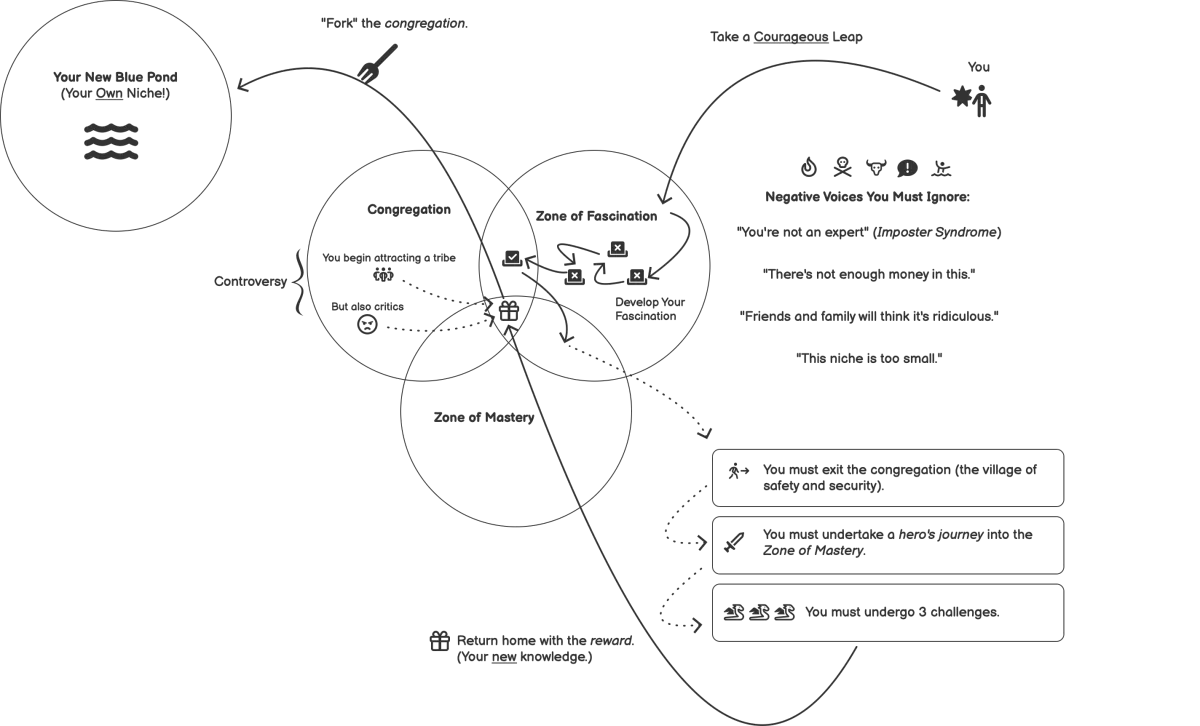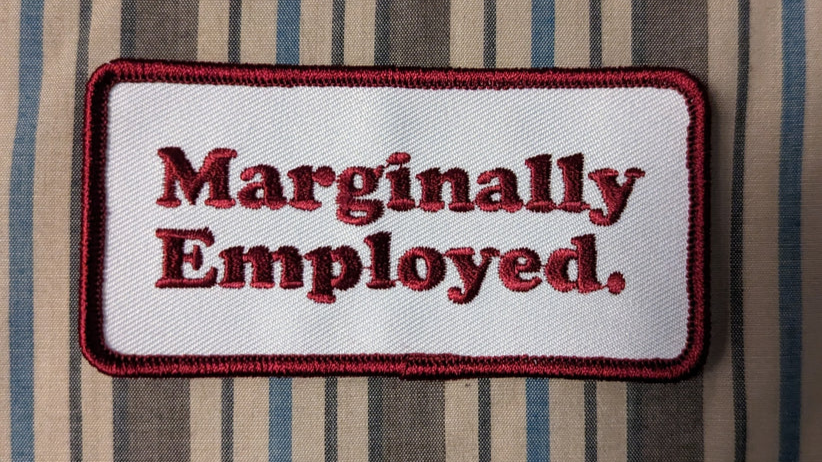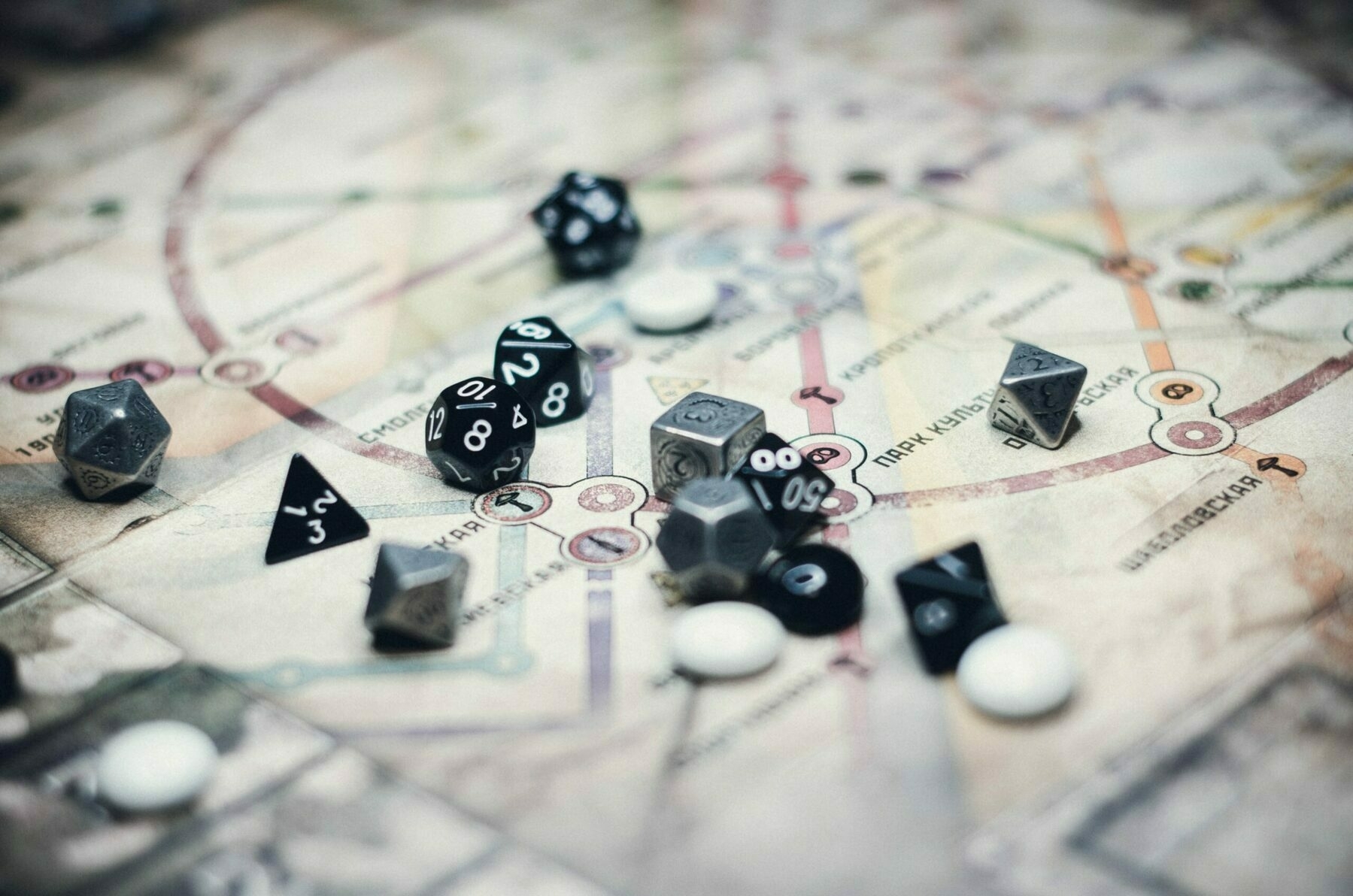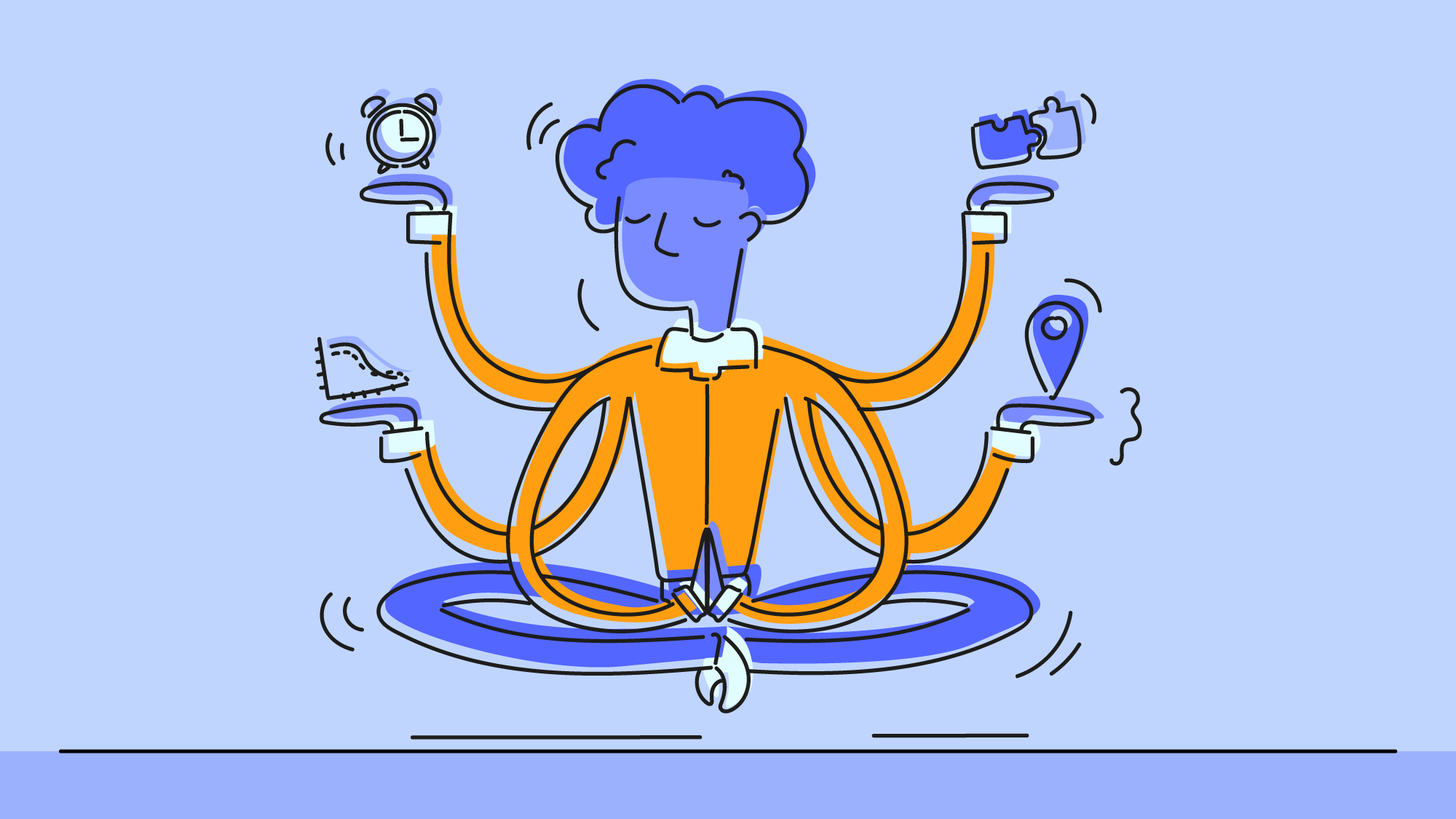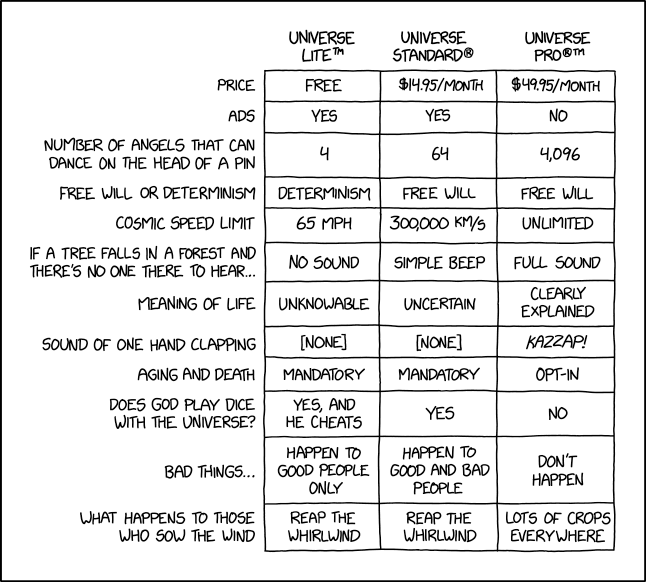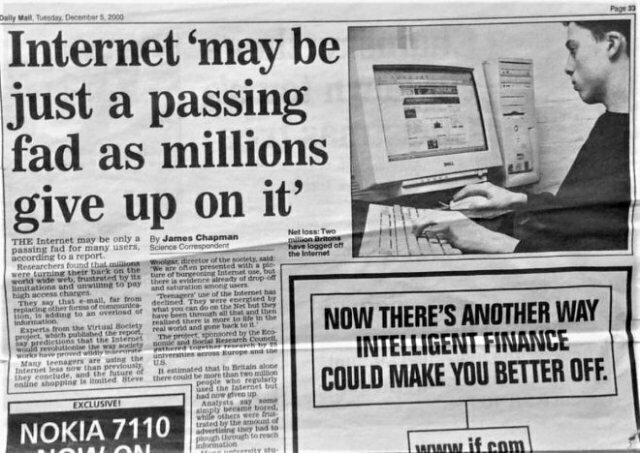Your future is statistically more likely to be better than your past
Another fantastic article by Arthur C. Brooks for The Atlantic which draws on research about how your future is likely to be happier than your past. That’s because of various psychological effects that come into play as you age.
Good news! I’m particularly looking forward to my anxiety tamping down and not being as triggered by negative situations.

Let’s start with how you will feel when you are old. By this, I don’t mean whether your back will hurt more (it almost certainly will), but rather the balance between your positive and negative moods as you age. The answer is probably better than you feel now.Source: How to Be Happy Growing Older | The Atlantic[…]
A 2013 review of research reveals that older people develop at least three distinct emotional skills: They react less to negative situations, they are better at ignoring irrelevant negative stimuli than they were when younger, and they remember more positive than negative information. This is almost like a superpower many older people have, that they know negative emotions won’t last so they get a head start on feeling good by consciously disregarding bad feelings as they arise.
[…]
If you follow the typical development, you can expect to be nicer and kinder, and less depressed and anxious, when you are old.
[…]
The good news about aging is that if we simply leave things to the passage of time, life will probably get better for us. But we can do more than just wait around to get old. We can lean into the natural improvements and manage any trends we don’t like.
Image: DALL-E 3
Avoiding the 'Dark Triads'
Arthur C. Brooks, whose writing I always enjoy, writes on sociopaths, narcissists, and ‘Dark Triad’ personalities. These Dark Triads are characterised by narcissism, Machiavellianism, and psychopathy. They’re manipulative and harmful, and making up about 7% of the population — although interestingly significantly more of the male prison population.
Brooks talks about how to spot and avoid them in the workplace and on social media, and how to gravitate towards ‘Light Triad’ personalities instead. These embody positive traits like faith in humanity and humanism, and represent a more uplifting aspect of human nature. Thankfully, Light Triads are more common in the general population.

As far as the workplace is concerned, scholars have found that narcissists tend toward artistic, creative, and social careers; researchers also saw that Machiavellians, in particular, avoid careers that involve caring for others. Look out for Dark Triads, in other words, in professions that involve human contact, performance, and applause, but little concerned attention to other people. An obvious example might be politics; another would be show business. But the type can manifest in many careers and professions. At work, such individuals tend to exaggerate their own worth, show a distrustful attitude toward colleagues, act impulsively and irresponsibly, break rules, and lie.Source: The Sociopaths Among Us—And How to Avoid Them | The Atlantic[…]
The traits to look for are self-importance, a sense of entitlement, vanity, a victim mentality, a tendency to bend the truth or even openly lie, manipulativeness, grandiosity, a lack of remorse, and an absence of empathy. Probe for these characteristics particularly when on first dates and in job interviews. You might even want to take that test imaginatively on behalf of someone you suspect may have Triad traits and see what result you get.
Image: DALL-E 3
The Societal Side-eye
I’ll turn 43 next month. I seem to have a lot more grey hair than other people my age. Some people act towards me as if I’m old. Perhaps I am in their eyes.
Fair enough, some days I wake up and I feel a million years old, but most of the time my fitness regime means that I feel pretty awesome.
This article is about ignoring the ‘societal side-eye’ and doing badass things anyway. It’s something we all need to remember as we age: don’t be beholden to other people’s expectation of what’s appropriate.
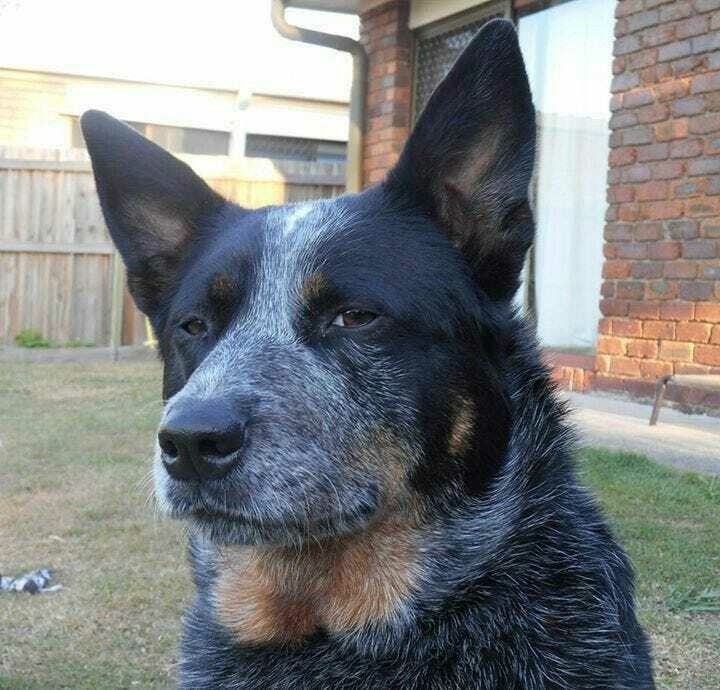
You and I are Way Too Old to let a societal side-eye sideline us from a badass life, however we define it.Source: You’re Too Old to Care About the Societal Side Eye When You Want to Be a Badass | Too Old for This Sh*tWho says we’re not supposed to even countenance the idea of learning to in-line skate. Or skateboard. Or paraglide. Or try trapeze work. Or aerial silks. Or whatever it was that got away from us as youths, and now beckons us back if we would only put in the training time. When does a timeline run out?
If we do such things, particularly if we sport grey hair, we are subjected to
“OH ISN’T THAT SO CUUUUUUUUUTE!”
[…]
Humans are a judgmental lot. We love to make fun of, mock and ridicule, especially those who are doing things we don’t have the guts to try. When some tiny Black woman well over a hundred heads out onto the track and runs a record time, we call her sweet or cute while she is engaging in serious badassery.
[…]
It’s hard enough to age. It’s far harder to age in a ageist society which is eager to denounce and mock those of us who defy expectations and insist on writing our own history, full of whatever badassery fills our hearts.
The first half of life is Tetris; the second half is Jenga
I don’t think much of the poem, but I’m stealing the first line of this article as the title of this post. It’s a useful metaphor!

You can’t not fall, but you can with humility redirect your downward inertia into a meaningful lateral motion. You can also spin, and you can allow yourself to be spun.Source: Tetris Sequence | Opaque Hourglass
Image: Unsplash
The inner world as the ultimate prison
I wanted to quote so much of this article that it would have ended up being a Borges-like 1:1 map of the territory. Instead, I’ll simply share the part of Swarnali Mukherjee’s writing which resonated most with me.
Do go and read the whole thing.
(I discovered this via Substack Notes, in which I have no financial interest, but simply finding to be a chill and serendipitious alternative to other social media)
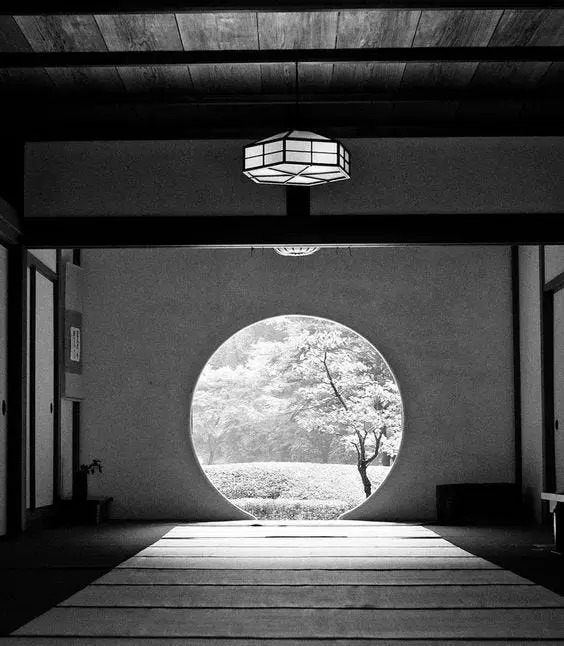
The problem is simple: most of us have normalized and even glorified the hustle for success. The issue lies not in the hustle itself but in the often overlooked aspect of burning out. When success is defined in terms of societal parameters such as wealth, fame, and the emphasis on building an identity, life's entire focus becomes sustaining and amplifying this ego at the cost of our well-being, both psychologically and physically. We reinvent spaces in our intellectual worlds to serve this gigantic ego that we have conjured over the years but seldom find true happiness there. Our inner world becomes our ultimate prison, from whose window our persistent illusion of success resembles fireworks, promising that we can achieve them as long as we stay in the prison. This is a subtle deception of our social constructs; we humans have meticulously constructed these labyrinths of illusions to shield ourselves from the truth that even if we are in service to our desires, they are influenced by external factors. In that manner, doing something because the world expects it, that you won’t be doing otherwise is also a form of imprisonment.Source: The Art of Disappearing | Berkana
In the long run, people can only treat you the way you let them
This blog post, which I discovered via Hacker News, is about ultimatums around ‘return to office’ mandates/ultimatums. But it’s also a primer to only allow people to treat you the way you want to be treated.
People who abuse any power they have over you aren’t worth respecting and definitely aren’t worth hanging around. Although sometimes it’s difficult to realise it, the chances are that you’re bringing the talent to the table, which is why they acting in a way fueled by insecurity.
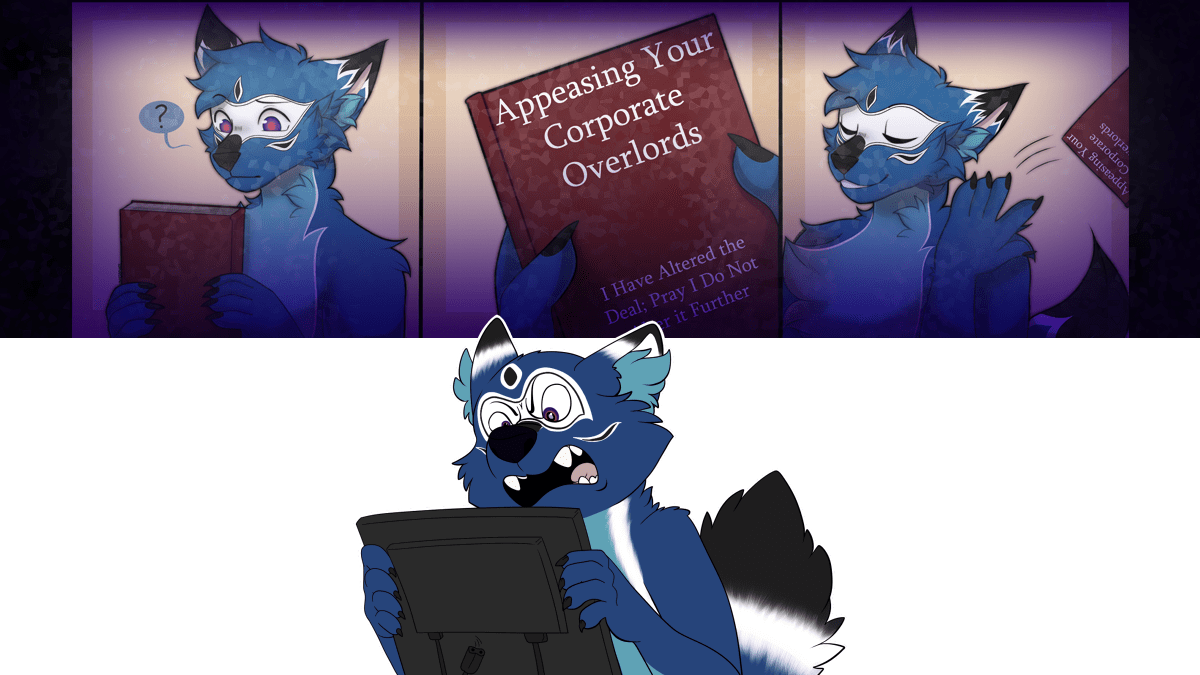
If I had to give only one bit of advice to anyone ever faced with an ultimatum from someone with power over them (be it an employer or abusive romantic partner), it would be:Source: Return to Office Is Bullshit And Everyone Knows It | Dhole MomentsUltimately, never choose the one giving you an ultimatum.
If your employer tells you, “Move to an expensive city or resign,” your best move will be, in the end, to quit. Notice that I said, ‘in the end’.
It’s perfectly okay to pretend to comply to buy time while you line up a new gig somewhere else.
That’s what I did. Just don’t start selling your family home or looking at real estate listings, and definitely don’t accept any relocation assistance (since you’ll have to return it when you split).
Conversely, if you let these assholes exert their power over you, you dehumanize yourself in submission.
No career progression on a dead planet
There’s a film starring Matt Damon called Elysium from 2013 in which the wealthy live on a man-made space station in luxury, while the rest of the population live on a ruined Earth. With the latest announcement about a new huge oilfield being opened in the North Sea, the obscene desire for global elites to put profit before planet is clear for all to see.
As we hurtle towards this scenario, many have realised that there is no longer any link between meaningful work, a decent salary, and a fulfilling life.

James, a 31-year-old in Glasgow, had always worked hard, from striving for a first at university to working until 8pm or 9pm at the office in the civil service in the hopes of getting noticed.Source: ‘It felt futile’: young Britons swap career-driven lives for family and fun | The GuardianBut during lockdown in 2020, James had an epiphany about what he valued in life when reading the book Bullshit Jobs by the anthropologist David Graeber. “He talks a lot about how jobs that provide social utility are generally pay-poor while the inverse are paid more,” James says.
James felt he was working doggedly – but not necessarily either generating public good or building a stable financial life. “It felt futile … You can work really hard and you’re still not going to get ahead,” he says.
“Salaries and housing costs are so mismatched at this point that you would really need to jump ahead in your career to be able to buy in parts of the country. Not that [owning property] is the be-all and end-all, but it’s kind of a foundation to having financial stability.”
He now focuses on his life, putting his phone on aeroplane mode while doing activities such as hiking, reading and watching films. “I still value work, I’m very committed to my position. But I’ve just realised that this myth a lot of millennials were told – graft, graft, graft and you’ll always get what you want – isn’t necessarily true,” James says. “It’s a reprioritisation.”
Social mobility in the UK is at its worst in more than 50 years, a recent study from the Institute for Fiscal Studies found, with children from poor households finding it harder than 40 years ago to move into higher income brackets. The IFS said gifts and inheritances from older generations were becoming more important to household incomes.
A trickle, a ripple, a slow rush
This article by Antonia Malchik reflects on her personal journey moving back to her hometown in Montana. It focuses on her deep sense of gratitude for the natural environment and community. She discusses the annual Gathering of the Glacier-Two Medicine Alliance, celebrating the retirement of the last remaining oil lease in the area, which is significant for the Blackfeet Nation.
The part of the article in which I’m most interested is towards the end: a reflective moment by a creek. She writes about the importance of being present in nature and contemplating one’s place and responsibilities in the world. That feeling of being in and of nature after a day’s walking, feeling quite emotional. It stirs my soul just thinking about it.

On my way home, I stopped at a creek I’m fond of, near a trailhead leading into the Bob Marshall Wilderness. The parking lot was empty of other cars or people. Last year when I’d camped there, the creek had held a delightful number of cylindrical caddisfly shells constructed from gravel about the size of a sesame seed. I looked for them but it was too late in the year.Source: Sometimes there’s a right answer, sometimes you sit by a creek, and sometimes they’re the same thing | On The CommonsThe creek ran cold across my bare feet, its sound and movement and chilly reminders of snowmelt all I really need in this world to ground myself in what’s real, and what matters. I sat there letting my feet go numb and the sound run through me, September’s late afternoon sunlight filtering through the aspen trees to glance off the water.
I don’t even know what to call that sound—a trickle, a ripple, a slow rush?
Sometimes the right answer is an action. Sometimes it’s a change in policy, or in culture. And sometimes it’s simply being, sitting there by a creek reminding yourself what it feels like to be alive, in a place you love. It’s asking questions of belonging and responsibility, and struggling with your own place in the world.
That sound is all of life to me. I could have sat there forever, grown cold and hungry, but I never for a moment would have felt alone.
The Empty Boat
This was cited in something I read last week and I thought it was worth making it easy for me to re-find. There are plenty of philosophers, including Aristotle, who talk about the difference between the way we treat animate and inanimate objects, but none put it so eloquently as Chuang Tzu.

If a man is crossing a riverSource: The Empty Boat by Chuang Tzu | Daily ZenAnd an empty boat collides with his own skiff,
Even though he be a bad-tempered man
He will not become very angry.
But if he sees a man in the boat,
He will shout at him to steer clear.
If the shout is not heard, he will shout again,
And yet again, and begin cursing.
And all because there is somebody in the boat.
Yet if the boat were empty.
He would not be shouting, and not angry.
Developing your niche
The website of the guy behind this post is a bit too heavy on the self-marketing for my liking, but I did like the diagram in this post about developing rather than ‘finding’ your niche.
The diagram is contrasted with the kind of Ikigai approach you usually see which, he points out, doesn’t tell you where to actually start.
First, you need to take a courageous leap.Source: It’s Not about Finding Your Niche, It’s about Developing Your Niche | Scott P. ScheperYou need to ignore the negative voices of self-doubt, and you need to ignore feelings of “imposter syndrome.”
Next, you need to begin exploring the odd thing(s) you find fascinating. I call this phase, the “Zone of Fascination.”
Next, you must find a congregation of people who share your irrational fascination. For myself, I found this in r/Zettelkasten.
After this, you need to exit the congregation and go deeper than anyone else in a specific area. You must undergo three challenges. Think of these as “quests” in a hero’s journey.
Marginally Employed
For various reasons I will explain elsewhere this post by Dan Sinker, which I read this morning, was particularly important to my life. Dan is awesome, and am thankful for his candor.
A month or so ago I was at a cookout for an old work colleague and friend. It was 100% people who I haven't seen since at least the pandemic hit, and most of them a few years even before that. And so, obviously, the first question anyone would ask is "what are you up to now," and, well, that's sort of a hard question for me to answer. As has been established on this blog before, I do a lot of things. Some of them are job-shaped, while others look, well, like an entire fictional town in Ohio. All of them are important to me and all of them are a little hard to explain.Source: Best Laid Plans | dansinker.comAnd so it was on that night that my brain—sometimes a friend, other times an enemy—responded “Well, I’m marginally employed,” before launching into a full-throated explanation of the wild world of Question Mark, Ohio to increasingly concerned onlookers.
I left the cookout feeling pretty weird, if I’m being honest. Since I’d last seen most of the folks that were there, they’d moved on to really incredible work. And here I was cobbling together bits and pieces of job-shaped things while spinning a yarn about a town plagued with disappearances. And then there was the term I used: marginally employed, which felt right but also felt a little embarrassing.
And then something happened. I talked about this on Says Who afterward and I heard from a bunch of folks who said, basically: Hey, me too. And I realized like, wait a second: I want to be doing work like I’m doing. Work that’s weird and exciting and, admittedly, hard to describe to people while also gnawing on some ribs. I don’t want to be doing a 9-5. I want to be marginally employed.
And so I made a patch. It’s really simple, just maroon on white and set in Cooper Black, my very favorite typeface. It reads, simply, “Marginally Employed.” No apologies, no frills. I love it. You might too. It’s $10 and ships free in the US.
Playing the right game
Thanks to Laura for pointing me towards this post by Simone Stolzoff. There’s so much to unpack, which perhaps I’ll do in a separate post. It touches on reputation and credentialing, but also motivation, gamification, and “value self-determination”.
Extracting yourself from the false gods of vanity metrics is hard, but massively liberating. It starts with realising small things like you don’t actually need to keep up a ‘streak’ on Duolingo to learn a language. But there’s a through line from that to coming to the conclusion that you don’t need to win awards for your work, or the status symbol of a fancy car/house.
I interviewed over 100 workers—from kayak guides in Alaska to Wall Street bankers in Manhattan—and met several people who achieved nearly every goal set out for them, only to realize they were winning a game they didn’t enjoy playing.Source: Playing a Career Game You Actually Want to Win | EveryHow do so many of us find ourselves in this position, climbing ladders we don’t truly want to be on? C. Thi Nguyen, a philosopher and game design researcher at the University of Utah, has some answers. Nguyen coined the term “value capture,” a phenomenon that I came to see all around me after I learned about it. Here’s how it works.
Most games establish a world with a clear goal and rankable achievements: Pac-Man must eat all the dots; Mario must save the princess. Video games offer what Nguyen calls “a seductive level of value clarity.” Get points, defeat the boss, win. In many ways, video games are the only true meritocratic games people can play. Everyone plays within clearly defined boundaries, with the same set of inputs. The most skilled wins.
Our careers are different. The games we play with our working hours also come with their own values and metrics that matter. Success is measured by how much money you make—for your company and for yourself. Promotions, bonuses, and raises mark the path to success, like dots along the Pac-Man maze.
These metrics are seductive because of their simplicity. “You might have a nuanced personal definition of success,” Nguyen told me, “but once someone presents you with these simple quantified representations of a value—especially ones that are shared across a company—that clarity trumps your subtler values.” In other words, it is easier to adopt the values of the game than to determine your own. That’s value capture.
There are countless examples of value capture in daily life. You get a Fitbit because you want to improve your health but become obsessed with maximizing your steps. You become a professor in order to inspire students but become fixated on how often your research is cited. You join Twitter because you want to connect with others but become preoccupied by the virality of your content. Naturally, maximizing your steps or citations or retweets is good for the platforms on which these status games are played.
Bad coffee
I love this essay, not because I necessarily agree with it, but because I agree with the vibe of it. It’s from 2019, so it must have come via my social feeds.
Keith Pandolfi used to own a coffee shop which served the best barista-crafted flat whites, etc. in the area. These days he drinks Maxwell House. Likewise, there’s areas of my life in which I’ve gone from being very fussy to not really caring. It’s the letting go that matters.
The best cup of coffee I ever had was the dirty Viennese blend my teenage friends and I would sip out of chipped ceramic mugs at a cafe near the University of Cincinnati while smoking clove cigarettes and listening to Sisters of Mercy records, imagining what it would be like to be older than we were. The best cup of coffee was the one I enjoyed alone each morning during my freshman year at Ohio State, huddled in the back of a Rax restaurant reading the college paper and dealing with the onset of an anxiety disorder that would never quite be cured.Source: The Case for Bad Coffee | Serious Eats[…]
I don’t have memories of… bonding experiences taking place over a flat white at a Manhattan coffee shop or a $5 cup of nitro iced coffee at a Brooklyn cafe. High-end coffee doesn’t usually lend itself to such moments. Instead, it’s something to be fussed over and praised; you talk more about its origin and its roaster, its flavor notes and its brewing method than you talk to the person you’re enjoying it with. Bad coffee is the stuff you make a full pot of on the weekends just in case some friends stop by. It’s what you sip when you’re alone at the mechanic’s shop getting your oil change, thinking about where your life has taken you; what you nurse as you wait for a loved one to get through a tough surgery. It’s the Sanka you share with an elderly great aunt while listening to her tell stories you’ve heard a thousand times before. Bad coffee is there for you. It is bottomless. It is perfect.
Living your best life
I didn’t know this guy, but for some reason clicked through to this post which appeared in my LinkedIn stream. It’s oddly affecting to see the words of someone who recently passed away doing so at peace with the world and hte place he had in it.
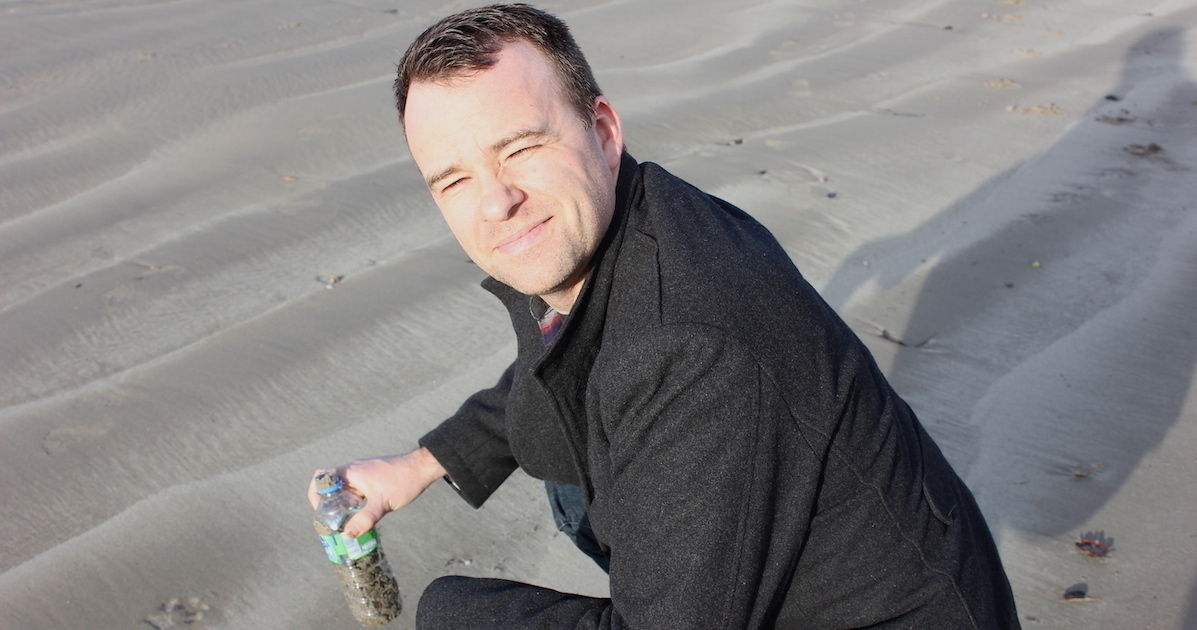
I wrote a book, I wrote a play and at least six thousand blog posts rife with dumb hot takes and cancellable offences. I ran a newspaper, a theatre company and a business. After a mentor invited me to work on the Copenhagen Climate Talks, I realised I could earn a living and still be on the side of the angels. And so, I helped to change laws that protect nature; I compelled people to get vaccinated during a pandemic; and I shook the hands of Prime Ministers in Paris.Source: They Were All Splendid | DarrenBarefoot.comI loved a woman for 27 years, but that is private and not for you.
This has been my life: art, exploring, work and love. I’m proud of it and sad that it’s shortened. I haven’t seen Asia. Will the Canucks win the Stanley Cup in the next thirty years? Will people walk on Mars?
I have a Buddhist friend who legitimately believes that every person is doing their best all of the time. I’ve finally come around to this idea. I’ve lived the best life I could.
Hyperbolic discounting applied to habit-formation
We live near the middle of town, a five minute walk to the leisure centre — and less than that to get to the shops. As a result, we don’t use our cars at all for three days of the week, and I go to the gym at the leisure centre every day.
My grandmother, who wasn’t well-off and who rented all her life, used to ensure that she lived right next to a bus stop. Although she wouldn’t have used the phrase from this article, she knew that she was more likely to travel and get places that way!
You may have heard of hyperbolic discounting from behavioral economics: people will generally disproportionally, i.e. hyperbolically, discount the value of something the farther off it is. The average person judges $15 now as equivalent to $30 in 3-months (an annual rate of return of 277%!).Source: Hyperbolic Distance Discounting | Atoms vs Bits[…]
But what about when something is farther off in space rather than time?
Say a 1-hour activity is 10 minutes away, compared to 5 minutes away. The total time usage would be 80 vs 70 minutes, about 15% longer. A linear model would predict that it would feel 15% more costly, and then proportionally affect your likelihood of going. In practice though, an extra 10 or 20 minutes of travel time will somehow frequently nudge you into non-participation.
Life product tiers
A bit of fun from xkcd, but with some underlying truth in terms of how people experience life almost as if it were different product tiers.
Source: xkcd: Universe Price Tiers
Life cannot be organised
Rebecca Toh is not only a fantastic photographer, but also has a wonderful turn of phrase.
In a way writing is a desperate attempt at organising what cannot be organised – life. But we all valiantly try because what is the alternative.Source: life cannot be organised | rebeccatoh.co
Life cannot be organised
Rebecca Toh is not only a fantastic photographer, but also has a wonderful turn of phrase.
In a way writing is a desperate attempt at organising what cannot be organised – life. But we all valiantly try because what is the alternative.Source: life cannot be organised | rebeccatoh.co
'Slack' and work
I’m composing this having done about 19 paid hours of work this week. I’ve also contributed to Open Source projects, written here, done some housework, parenting, and various other things.
I don’t define myself by paid work. I can’t really even properly tell you what I ‘do’ for a ‘job’, to be honest.
According to Bertrand Russell, this is all well and good. As Andrew Curry notes in this post, we should be aiming for about 60% capacity at any given time. I usually end up averaging between 20 and 25 hours per week, so it looks like I’m doing OK…
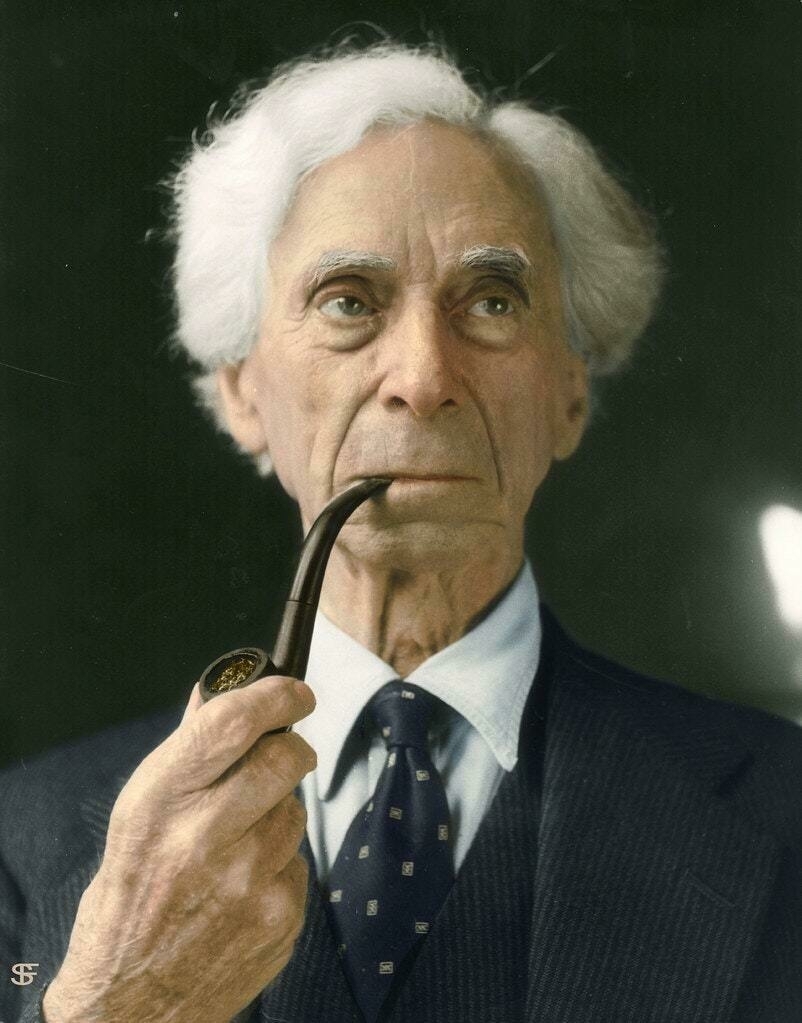
One of the key parallels that’s useful to draw here is between the idea of working less and ‘slack’. Slack is a difficult concept to pin down, but can exist in forms from queueing theory to buffer states. Working fewer hours than the current default 40-hour week is probably what most people do already, and it is also probably likely to move our slack-meter to a more optimal level.Source: 10 June 2022. Work | Dystopia | Just Two ThingsRunning with significant slack is often more efficient than running systems at high capacity. If you’re mathematically minded, Erik Bern simulates this via some code in the queueing theory link above, but G Gordon Worley III…gives a simpler explanation:
If you work with distributed systems, by which I mean any system that must pass information between multiple, tightly integrated subsystems, there is a well understood concept of maximum sustainable load and we know that number to be roughly 60% of maximum possible load for all systems.Allowing flexibility and time into our systems so that we can sit idle is not an admission of defeat, but instead has the potential to be optimal in many circumstances.This property will hold for basically anything that looks sufficiently like a distributed system. Thus the “operate at 60% capacity” rule of thumb will maximize throughput in lots of scenarios: assembly lines, service-oriented architecture software, coordinated work within any organization, an individual’s work, and perhaps most surprisingly an individual’s mind-body.
“Slack” is a decent way of putting this, but we can be pretty precise and say you need ~40% slack to optimize throughput: more and you tip into being “lazy”, less and you become “overworked".
I’m not sure how many working hours a week the dogma “operate at 60% capacity” translates to, but Bertrand Russell thought it might be twenty.
The life-changing difference of an internet connection
As someone who’s seemingly around the same age as the author of this post, I agree that the internet has made my life better. I didn’t have it anywhere near as hard as them while growing up, but my online connections (and research) have certainly helped me escape into a different life.
This is part of the story of how the internet changed my life for the better. I’m an early millennial and I was raised online. Through the internet, I found friends, support, and the human connection that I was lacking in real life. I also found valuable information that helped me help myself and sometimes help others. The key with information is always to effectively filter the good from the bad, which is a genuine life skill unto itself. My life today isn’t perfect, but it’s better than it’s ever been. My message to all the people out there who are struggling is to believe in yourself. If you help yourself and you let others help you, things are never hopeless.Source: The Internet Changed My Life | Pointers Gone Wild
